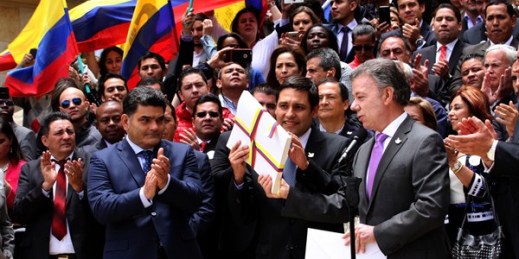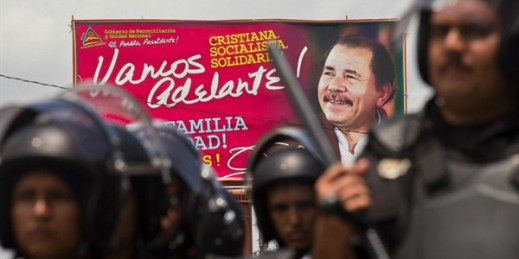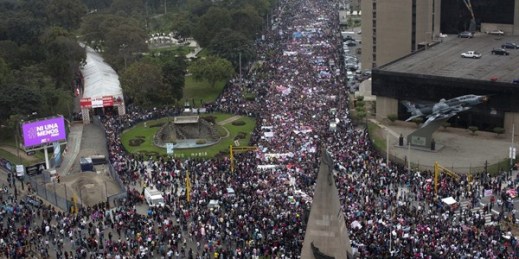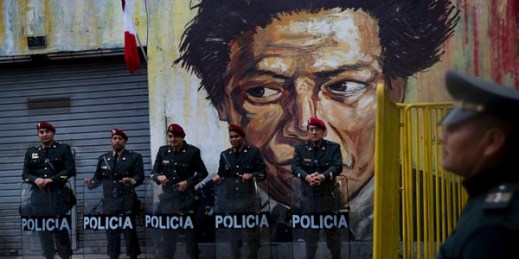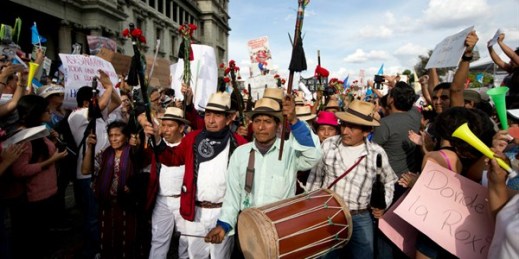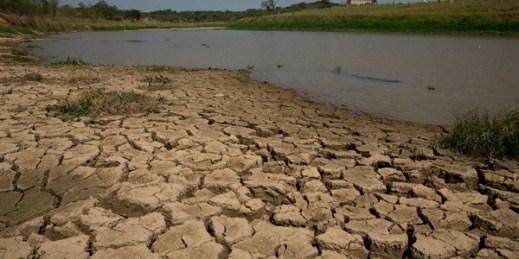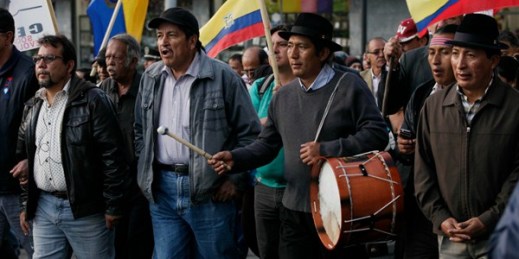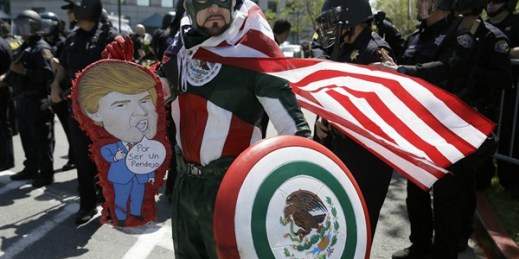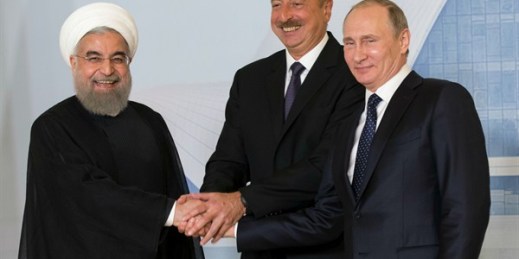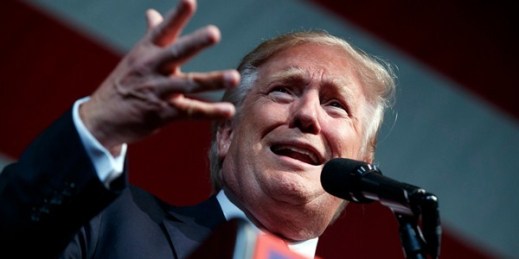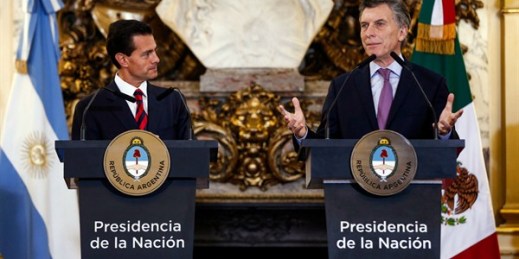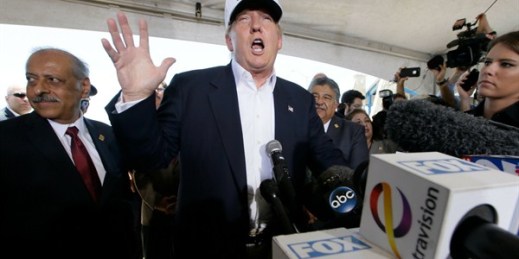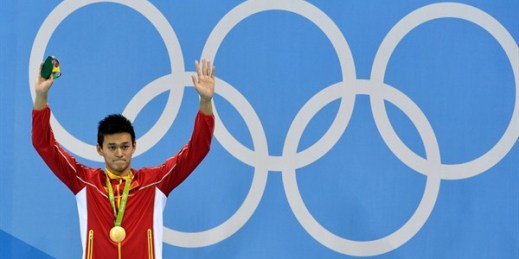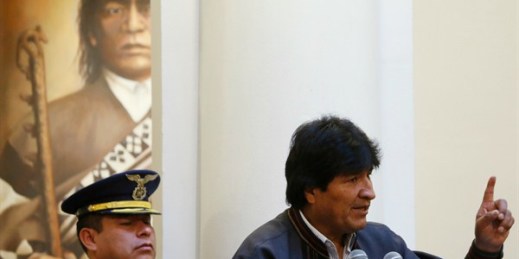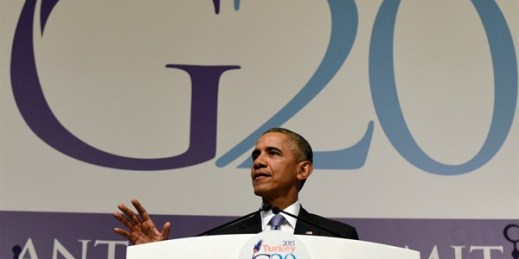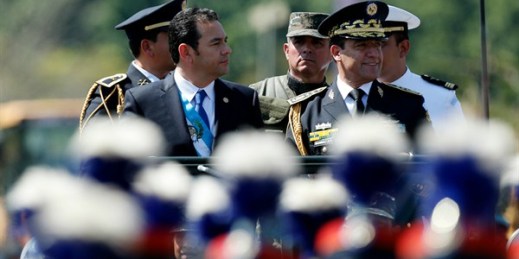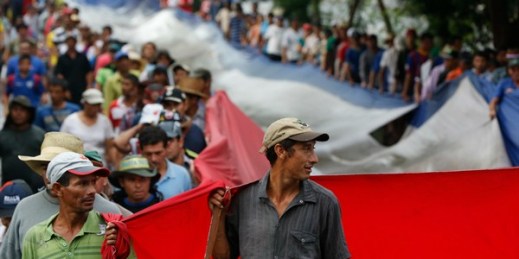
Earlier this month, hundreds of people marched in Asuncion, demanding the resignation of Paraguayan President Horacio Cartes and denouncing widespread government corruption. In an email interview, Mercedes Hoffay, a program manager at Global Americans and Christopher Sabatini, a lecturer of international and public policy at Columbia University’s School of International and Public Affairs and the executive director of Global Americans, discuss Cartes’ leadership and politics in Paraguay. WPR: How successful has Cartes been at following through on his 2013 election promises, namely growing the economy and reducing crime? Mercedes Hoffay and Christopher Sabatini: Cartes’ follow-through on his campaign promises has […]

